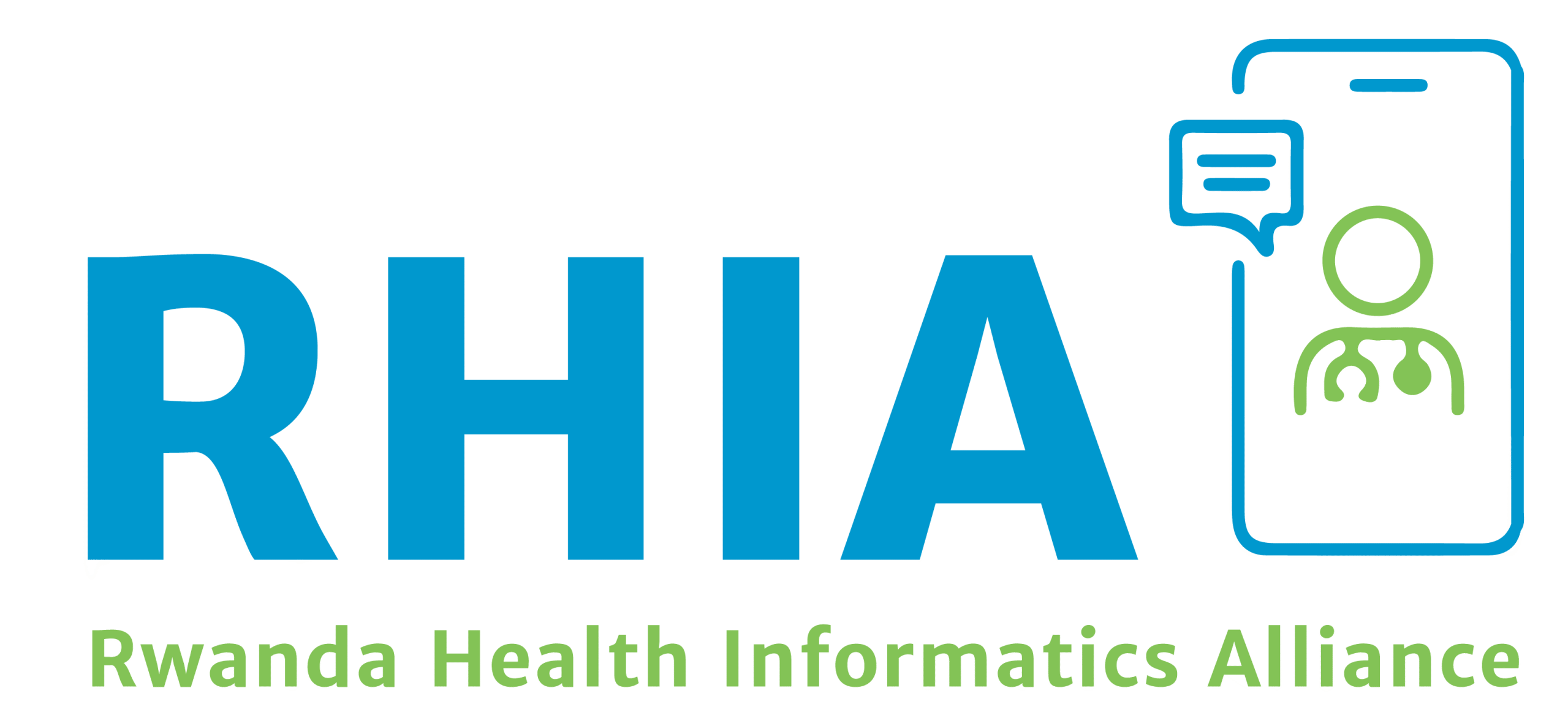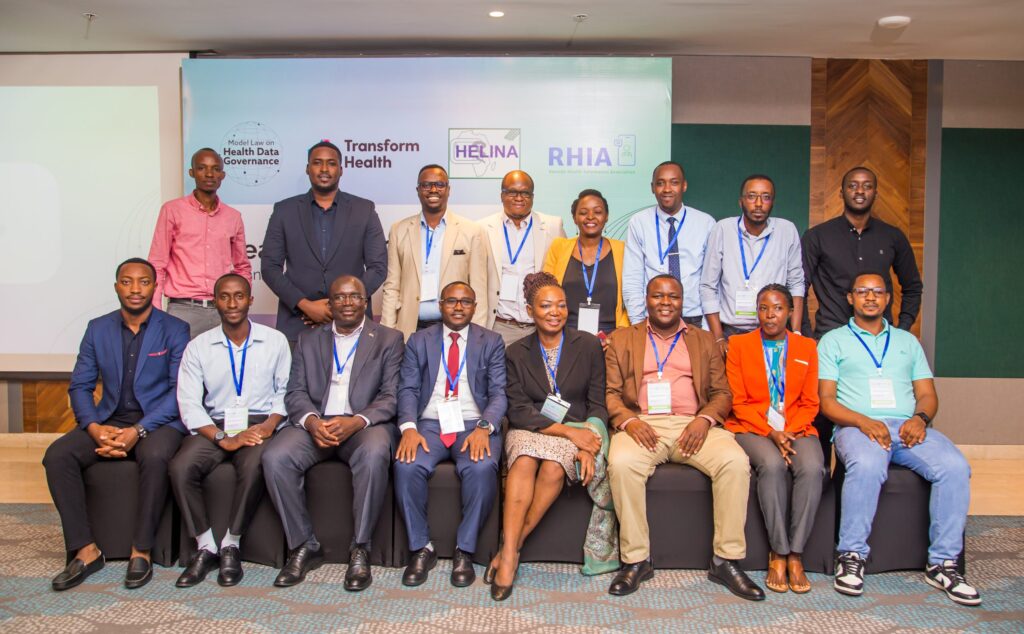Pioneering Global Health Data Governance: Insights from Kigali Consultation
Introduction:
In the modern healthcare landscape, robust data governance stands as a cornerstone, ensuring patient confidentiality, data security, and ethical information use. Recently, Rwanda Health Informatics Association (RHIA), in collaboration with Health Informatics in Africa (HELINA) and Transform Health, organized a consultation conference on Health Data Governance principles and regulations. This gathering aimed to unite stakeholders from various sectors, including government bodies, healthcare professionals, legal experts, and private industry representatives. Their collective objective? To craft a comprehensive and visionary legislative framework that transcends borders, setting new standards for health data management. This initiative seeks to facilitate cross-border data sharing, foster harmonization across countries, and provide governments with a vital resource for enhancing healthcare governance.
Consultation Highlights:
The consultation held on March 26, 2024, was guided by a set of objectives aimed at soliciting expert input, fortifying the draft law, fostering consensus, and ultimately securing political support for its endorsement. The discussions, organized into three groups focusing on content refinement, enhancing usefulness and practicality, and building consensus, yielded several key outcomes that underscored the depth of analysis and diversity of perspectives brought to the fore.
Content Refinement:
One recurring theme centered on the need for specificity, particularly regarding data sharing and emerging technologies. Stakeholders emphasized the importance of explaining what data should be shared, what should remain confidential, and how emerging technologies like AI and blockchain factor into the governance framework. Furthermore, suggestions were made to enhance clarity and coherence, with particular attention to sections addressing offenses, disputes, and penalties.
Enhancing Usefulness and Practicality:
Stakeholders advocated for expanding the scope of definitions, recommending technical tools, and broadening the document\’s accessibility through translation into UN international languages. The consultation underscored the importance of addressing data governance beyond pandemics and ensuring alignment with pre- and post-pandemic scenarios.
Building Consensus:
Establishing consensus across countries emerged as a difficult challenge, due to differing governance styles, existing legal frameworks, and resource constraints. Recommendations included revisiting national data privacy laws, fostering cross-border harmonization, and addressing ethical considerations in a globally interconnected landscape.
Reflections and Recommendations:
The consultation was praised for fostering open dialogue and collaboration among stakeholders. Moving forward, there\’s a consensus on the need for comprehensive dissemination of the law, proactive engagement with governments, and strategic partnerships to build political support. Recommendations include detailed documentation and wider stakeholder engagement to ensure the law\’s efficacy and relevance.
Next Steps:
As we march towards the launch of the model law on May 28, 2024, it\’s imperative to continue advocating, socializing, and gathering support at both national and global levels. Initiatives such as assembling discussions with decision-makers, leveraging regional mechanisms like the African Union, and engaging strategic partners will be instrumental in securing widespread adoption and endorsement.
Conclusion:
The East Africa-Rwanda Consultation on the draft model health data governance law marks a pivotal moment in shaping the future of healthcare data management. By harnessing collective wisdom, fostering collaboration, and embracing innovation, we are laying the groundwork for a robust and inclusive governance framework that transcends boundaries and ensures the ethical use of health data for generations to come. Let us seize this moment to pioneer a new era of data governance, where integrity, transparency, and accountability reign supreme.
References:
https://healthdataprinciples.org/



